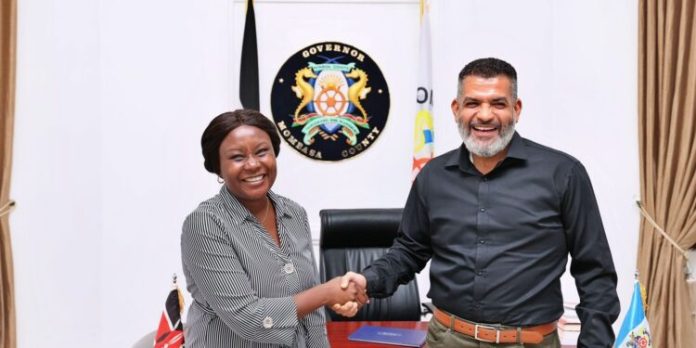In recent days, the debate over the ban of Miraa and Muguka in Mombasa and Kilifi Counties has intensified, drawing significant public and political attention. The bans, championed by Governors Abdulswamad Nassir of Mombasa and Gideon Mung’aro of Kilifi, are grounded in concerns over the negative health and social impacts of these substances, particularly among the youth. This comes less than a month after a joint meeting between Governors Cecily Mbarire of Embu and Governor Abdulswamad Nassir that resulted in a taskforce to deal with the issue.
Miraa and Muguka, which contain the psychoactive substances cathinone and cathine, have been classified as harmful by the World Health Organization (WHO). This classification has led to their prohibition in many countries, including the United States and several European nations. In Mombasa and Kilifi, the consumption of Muguka has been linked to mental health issues, including increased admissions to rehabilitation centers and a rise in violence and criminal activities among users.
The executive orders issued by Governors Nassir and Mung’aro mandate a complete ban on the entry, sale, and use of Muguka within their respective counties. These decisions followed consultations with the National Authority for the Campaign against Drug Abuse (NACADA) and public health officials, who have highlighted the severe socio-economic and health consequences of Muguka consumption.
The bans have faced opposition from Muguka traders and farmers, particularly from Embu and Meru, who argue that the trade provides livelihoods for many families. Leaders from these regions have engaged in dialogues with coastal county officials, seeking ways to regulate rather than prohibit the trade entirely. However, the coastal county leadership maintains that public health and safety must take precedence.
Former Mandera Senator Billow Kerrow has been particularly outspoken about the issue. He has labeled miraa as a “dangerous drug” and an “evil crop” that is destroying the youth, particularly in the Somali community. Kerrow argues that miraa’s psychotropic effects, which include mental health deterioration and economic devastation, far outweigh the economic benefits for farmers. He insists that government support should help farmers transition to alternative crops.
In response to the ongoing debate, President William Ruto has declared the county-level bans null and void and has called for a consultative forum to discuss the issue with leaders from the affected regions. This decision underscores the complexity of balancing economic interests with public health and social concerns. President Ruto has emphasized that any regulatory actions regarding miraa and muguka should be grounded in national law and suggested that if current laws are problematic, they should be amended through parliamentary processes.
Critics of the ban, including some national political figures, argue that the decision undermines the economic interests of the farmers and traders and that any problematic laws should be addressed through parliamentary amendments rather than executive orders.

